A growing population is NOT a problem in and of itself. We produce enough food to feed ten billion people, for example. The issue comes down to the high living standards enjoyed by the West, and pursued by everyone else.
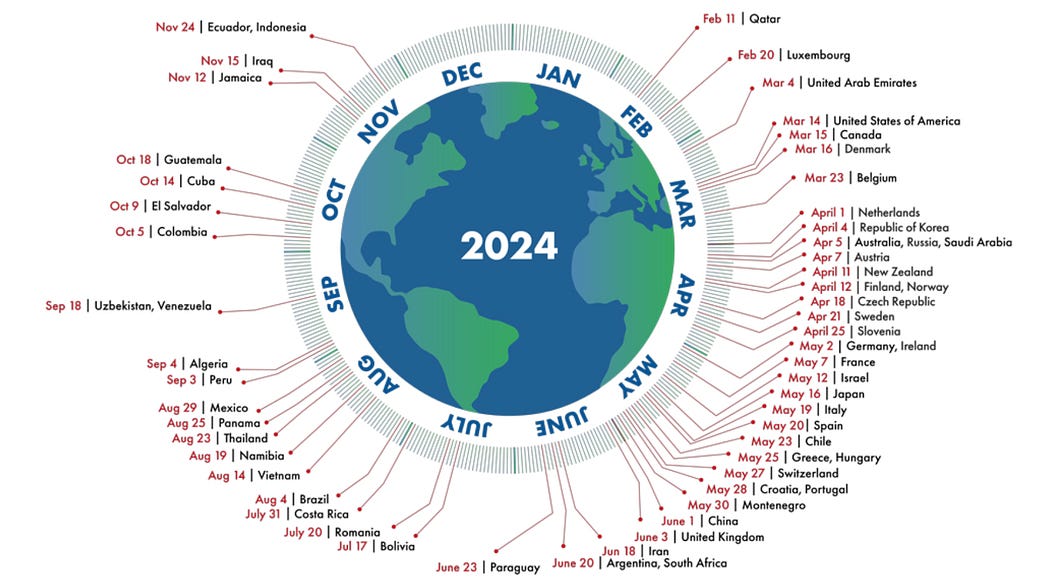
So, if we are 1.75 Earths into overshoot, we just need to destroy capitalism, replacing it with a new economic system, one that gets rid of the uberwealthy (e.g. tax billionaires into mere millionaires). The poorest 20 percent of citizens in the UK consume over five times more energy per person than the poorest 84 percent of people in India. So if we all lived equitably like middle class consumers in India, consuming only 0.9 Earths, then Earth could support 10-25 billion people doing pretty well considering that they wouldn’t be destroying a planetary life-support system.
Start by depowering uber consumers in Canada and the US (then the rest of the West). Doing so will end almost all CO2 emissions (it’s a good for climate thing).
The face palming problem is that the first sentence quoted above is energy/reality blind. All other thoughts that follow, however eloquent and supportive of one’s political views and vision of furthering the ideology of the necessary primacy of the human enterprise (zero-order humanism), doesn’t matter, i.e. is just another lethal illusion, likely more lethal to posterity and the biosphere than going full-frontal MAGA on the planet.
Behavioral modernity, based on archaeogenetics, began about 75k years ago and features hyperprosociality based on (requiring) ideology (religious and/or political). For millions to agree to die for their country/god is to evolutionary biologists a form of altruism. Modern humans are different from evolvable animals/homininans.
Before there were zero-order humanist ideologues on the planet (before 75k years ago), all homininans on the planet likely numbered less than a million. After 63k years of expansion as Man the Hunter, humans may have numbered 3–4 million (Statista estimate 3.5 million), most of the planet having been taken.
After 71k years of expansion, by 2000 BCE, agrarianized grain-fed humans came to predominate and number 20 to 30 million, for a time. With few exceptions, e.g. annual deposition on the Nile floodplain, agriculture as soil mining, salinization, erosion machine proved unsustainable in region after region after region.
For some reason, the Fertile Crescent isn’t fertile anymore (hint, it wasn’t climate change). The solution was to build empire while you could, conqueror new lands and, post empire, after about 500 years of partial recovery, abandoned zones could be retaken and the pattern repeated.
About 500 years after the Romans had deforested north Africa and Europe (then turning forest soils into food for a time), Europe had auto-reforested and proper empire building began again when the first Pope crowned the warlord Charlemagne First Emperor tasked to make the Roman Empire great again.
European mercantilism during the Age of Discovery (roughly 15th to 18th centuries) required (per James Burke, science historian) about 1k old growth oak trees to make one merchant ship or warship. No problem, Europe was covered with them (in the 15th century thanks to the lights going out in Rome), but then there was not enough and the forests of North America had to be consumed by the less than 1 billion humans on the planet (Jamestown was founded in 1607 because Europe was running out of wood for glass making needed for glass windows in proliferating mansions), and if fossil fuels hadn’t replaced scrap wood and whale oil as an energy source, the forests of South American and Indonesia would have soon had to be harvested well before the 20th/21st centuries.
Without fossil fuel inputs, direct and indirect, exploiting global forests to grasslands and then their soils (with all marine and freshwater resources for the taking added), Earth could have supported over a billion humans in plague-phase overshoot for a time. But on a planet without fossil fuels, the few hundred million living in the 21st century would be like so post climax (and still on the way down).
If all planetary environmental productivity is maximally (but sustainably) exploited to support a maximum human (and livestock/pet/crop) population, informed estimates (i.e. neoliberal economist’s opinions ignored) seem to be in the 500–600 million range (e.g. H.T. Odum, David Pimentel).
Oh, but what if humans (their ‘footprint’) didn’t cause any species extinctions nor prevent new species from evolving to replace those already lost to the Anthropocene mass extinction event that was well underway by 2000 BCE (agriculture being by far the number one driver of extinction)? To allow new species to evolve to replace those lost by 2000 BCE, ask how much further back in time the human footprint would have to be walked back?
Hint: Five million humans would be more than enough to conserve human ethno-linguistic-cultural diversity. Rapidly reducing human population by birth-off (voluntary or not) to mitigate die-off to five million in 80 years would be a good start. If your modern mind is screaming ‘five million is too few!’, remind it that zero is fewer.
Or don’t change. No call to action or to wake up implied. ‘Understand or die, humans’ — Gaia, who doesn’t care. Understanding doesn’t come by choice. Understanding may compel an alternative trajectory for some. Extinction may not be the only outcome. ‘Have a nice Anthropocene, humans’ — Gaia. ‘To think is to listen. Listen!’ — Aluna



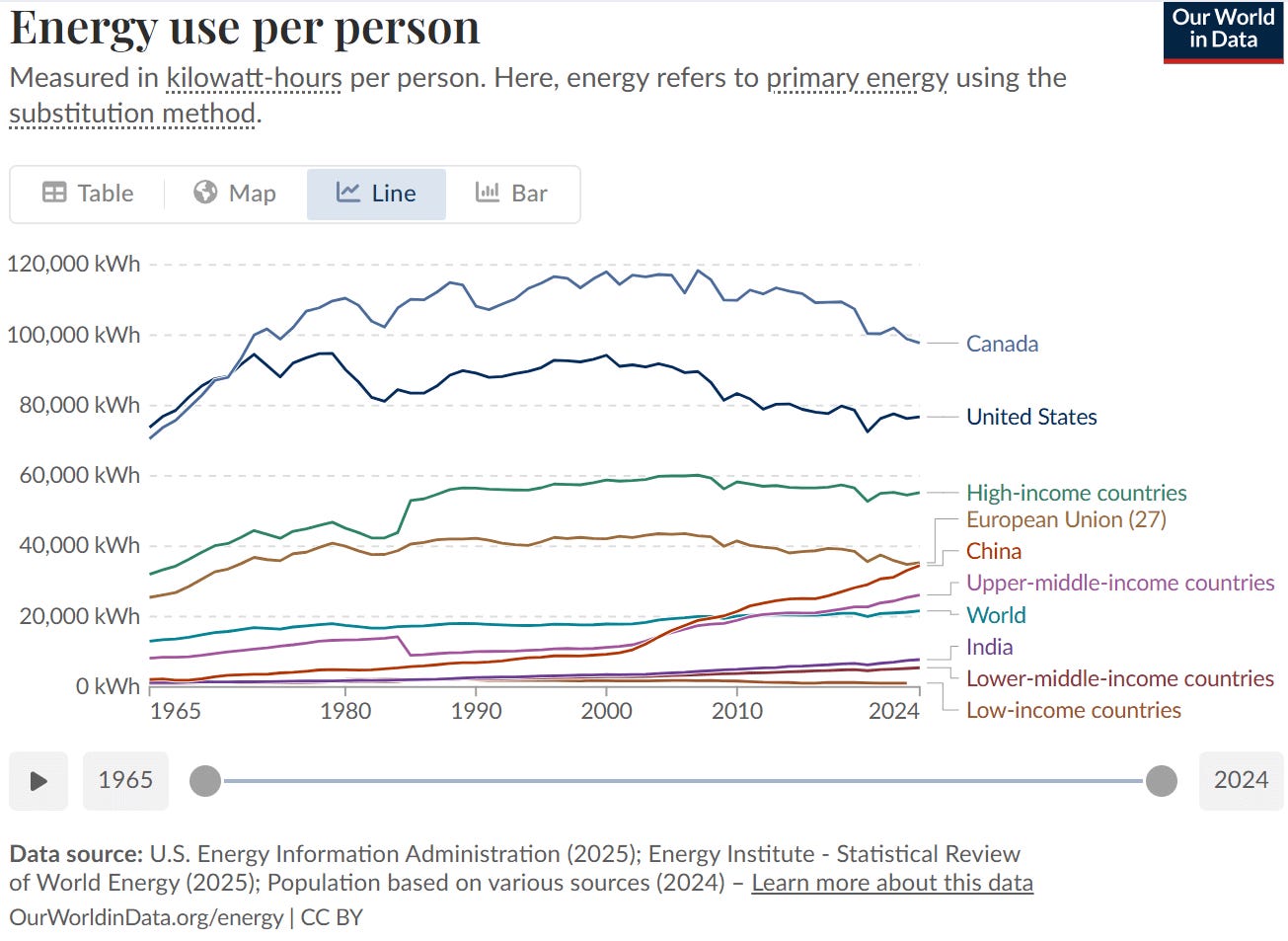
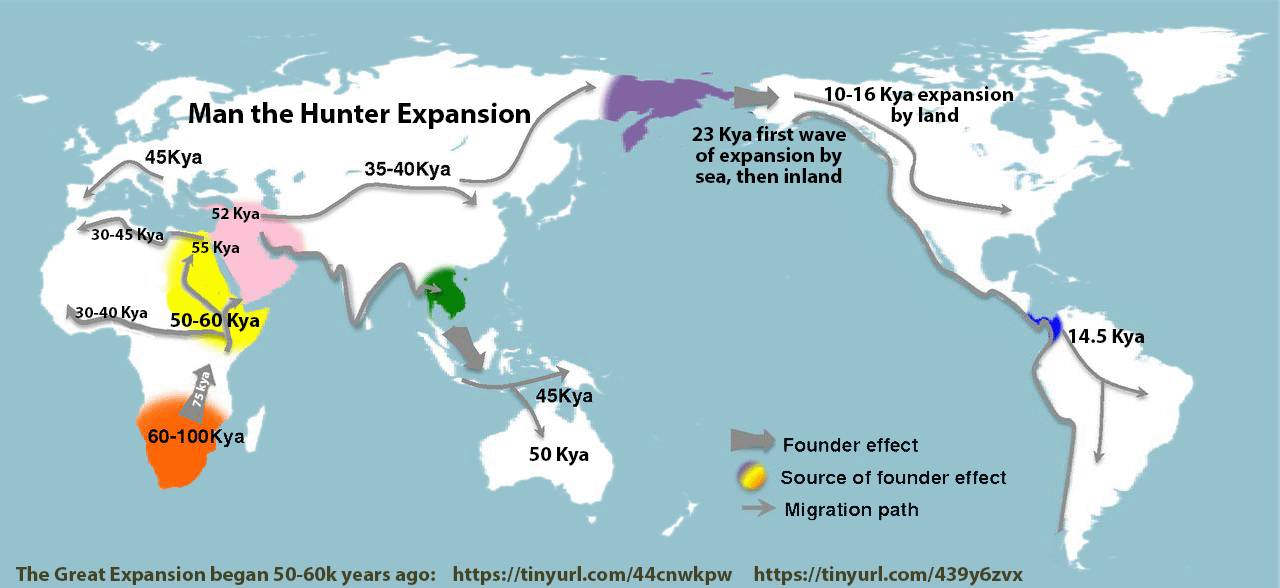
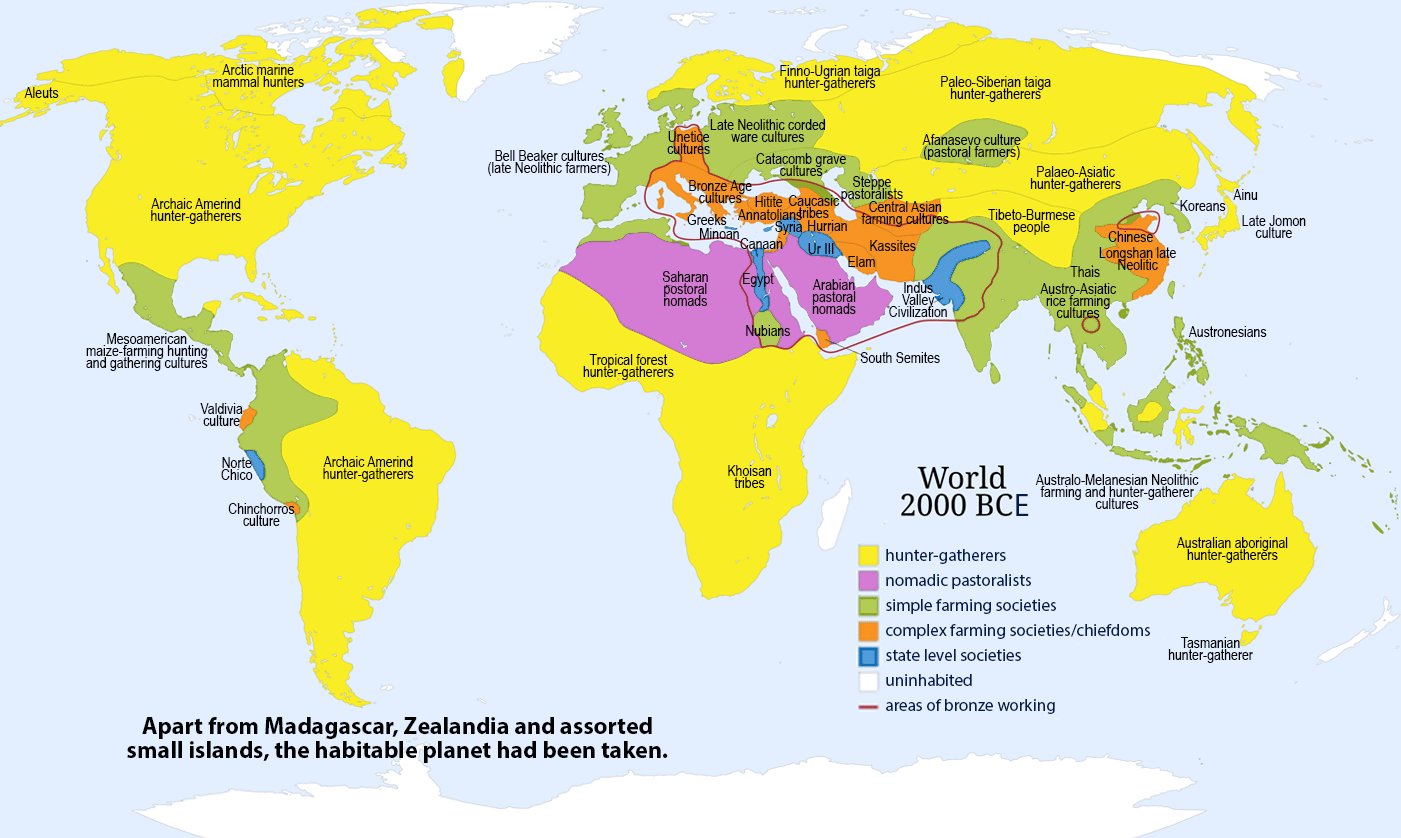
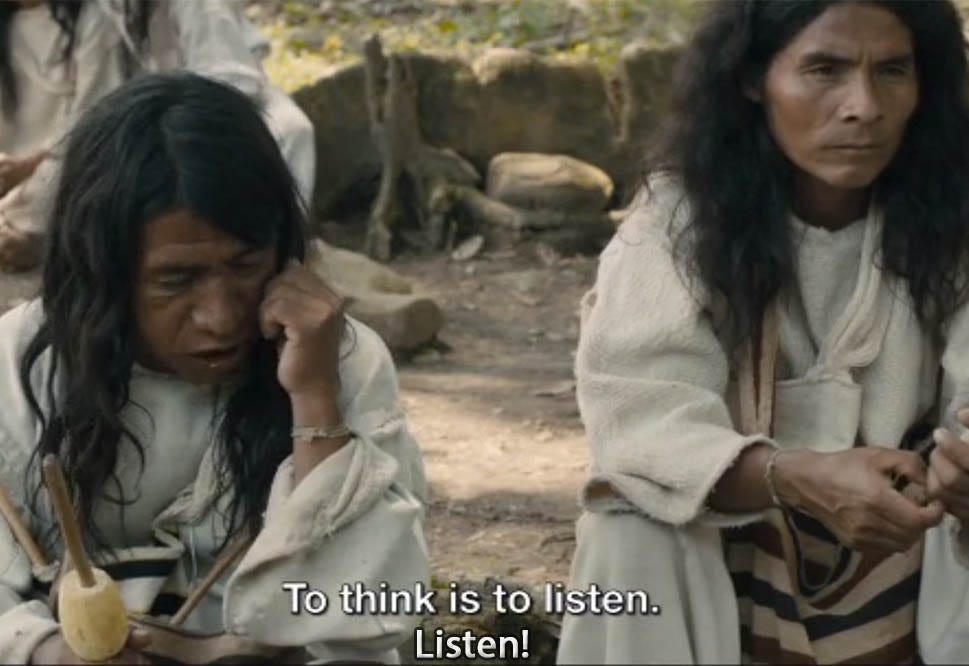
First, as always, I am deeply thankful for the creative ways you are using your gifts and sharing the results of your work. Yours is a clear and much needed voice/heart/spirit.
Second, one of the questions that needs greater clarity is, What is the root source of our reality blindness as a species? This question is important because the way it is answered will determine whether or not our future is biologically determined. If it is, then this fact changes the game to be played until we expire. Thoughts?